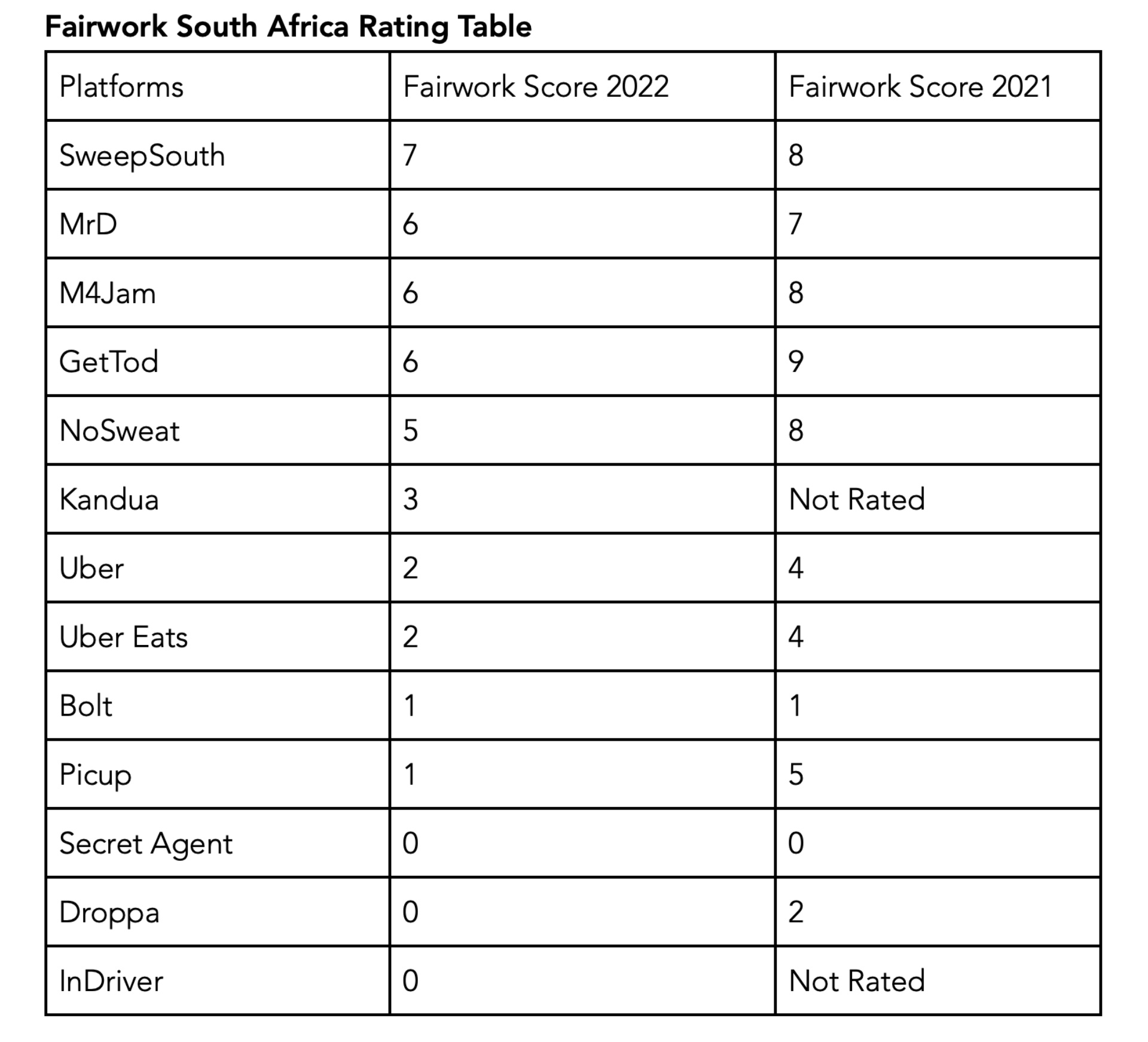In recent years, many South Africans have embraced the use of gig economy platforms, with Uber leading the way in terms of visibility for its Ride and Eats offerings. It is hard to deny how dependent we have become on these platforms, not to mention the general ease of paying for a service instead of doing it yourself.
While many of these platforms position themselves as economic enablers, the latest report from Fairwork SA paints a very different picture.
Now in its fourth year, the Fairwork SA report highlights the performance of gig economy platforms in the country in terms of its treatment of workers.
Last year’s report, carried out by researchers at Oxford University and the University of Cape Town, found that locally founded gig platforms did far more for their workers than international ones, many of which still choose not to acknowledge them as employees over how much additional admin that would represent.
A step backwards
We have lamented the lack of localisation from gig platforms in the past, as well as the general desire to ignore some of the real-world issues plaguing workers in SA, and the 2022 Fairwork SA rightfully reflects that.
“The fourth annual ratings of working conditions in the South African platform economy finds platform workers continue to face insufficient wages, unfair working conditions and a lack of benefits and protections afforded to employees,” a summary of the report’s findings explains.
“Thirteen of the most popular platforms in South Africa have been rated from 0 to 10 according to five principles of fair work (pay, conditions, contracts, management and representation) in this report,” it adds.
That is a rather concerning finding, with all of the platforms that were looked at this year scoring lower than they did in the previous year.
Fairwork does note that part of the reason for the drop in scores is as the result of new criteria which these platforms are measured on, with these organisations now needing to be held to a higher standard if their claims about empowerment and financial inclusion are to be taking seriously.
“These changes are partially explained by the adjustments made to the principles of Fair Conditions and Fair Representation for this year’s scoring. While in previous years it was enough for platforms to have a written policy to achieve these points, this year they were asked for its practical application by providing evidence they compensate workers for their inability to work and that workers have a real say in their working conditions. None of the platforms studied this year could prove either of the criteria,” the report points out.
The scores for gig platforms this year follow in the table below:
While there are indeed several key findings from the report, the most pressing in our view are dangerous working conditions and a lack of financial protection.
Regarding the first, the report notes that almost half the gig workers interviewed this year raised safety as one of their main challenges.
“Delivery and ride-hailing drivers interviewed pointed out that the threat of hijacking and assault was a daily worry, a reality brought into focus recently with the murder of Abongile Mafalala, a ride-hailing driver in Cape Town,” the report adds.
As for the other key finding, just like people throughout the rest of the country, gig workers have been far from immune to the rising cost of living, whether that be for fuel or indeed the vehicles they need to do their jobs.
“Regardless of the sector, most platform workers reported transportation costs as the biggest contributor to their work-related expenses. As independent contractors, platform workers must cover all costs associated with their work. With rising fuel prices, some workers reported that their hourly costs exceeded their estimated hourly pay, and this extreme situation can lead them to accept more risk in their work,” the report shares.
Lack of engagement
It is not all bad news, however, with Fairwork SA noting a few positive outcomes after the organisation consulted with a handful of platforms. We should note though, that most of the positive developments are from local gig platforms, which once again illustrates a distinct unwillingness to engage from larger international ones.
“To improve workers’ pay, getTOD has reduced its commission rate to 20% and MrD has introduced a variable fuel surcharge to compensate drivers for additional costs arising from fuel increases,” says Fairwork.
“SweepSouth has simplified the language of its terms and conditions, included a process for workers to appeal disciplinary decisions, like deactivations. They also made a commitment to make an existing public statement of their willingness to engage in collective bargaining more visible to their workers,” it continues.
With last year’s report painting a rather grim picture, the outlook from the 2022 iteration does little to convince us that the lives of gig workers will get better.
The only way things will change according to the researchers of Fairwork, is to compel the platforms to take positive action.
“Decent work and job creation are not mutually exclusive. Moral pressure on platforms can encourage them to make improvements but, unfortunately, not all platforms will do so voluntarily. We need to develop an enforceable code of basic worker rights that is compatible with sustainable business models, by bringing workers and other stakeholders to the table,” they conclude.
To read the 2022 Fairwork SA report for yourself, head here.
[Image – Photo by Rowan Freeman on Unsplash]


